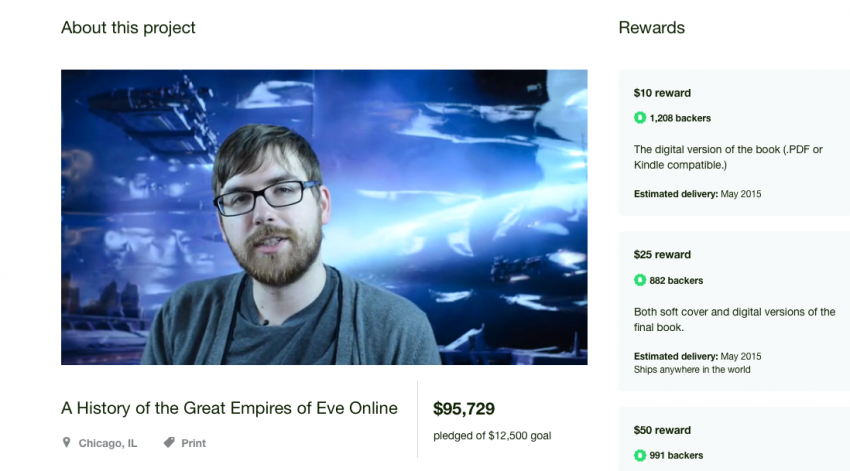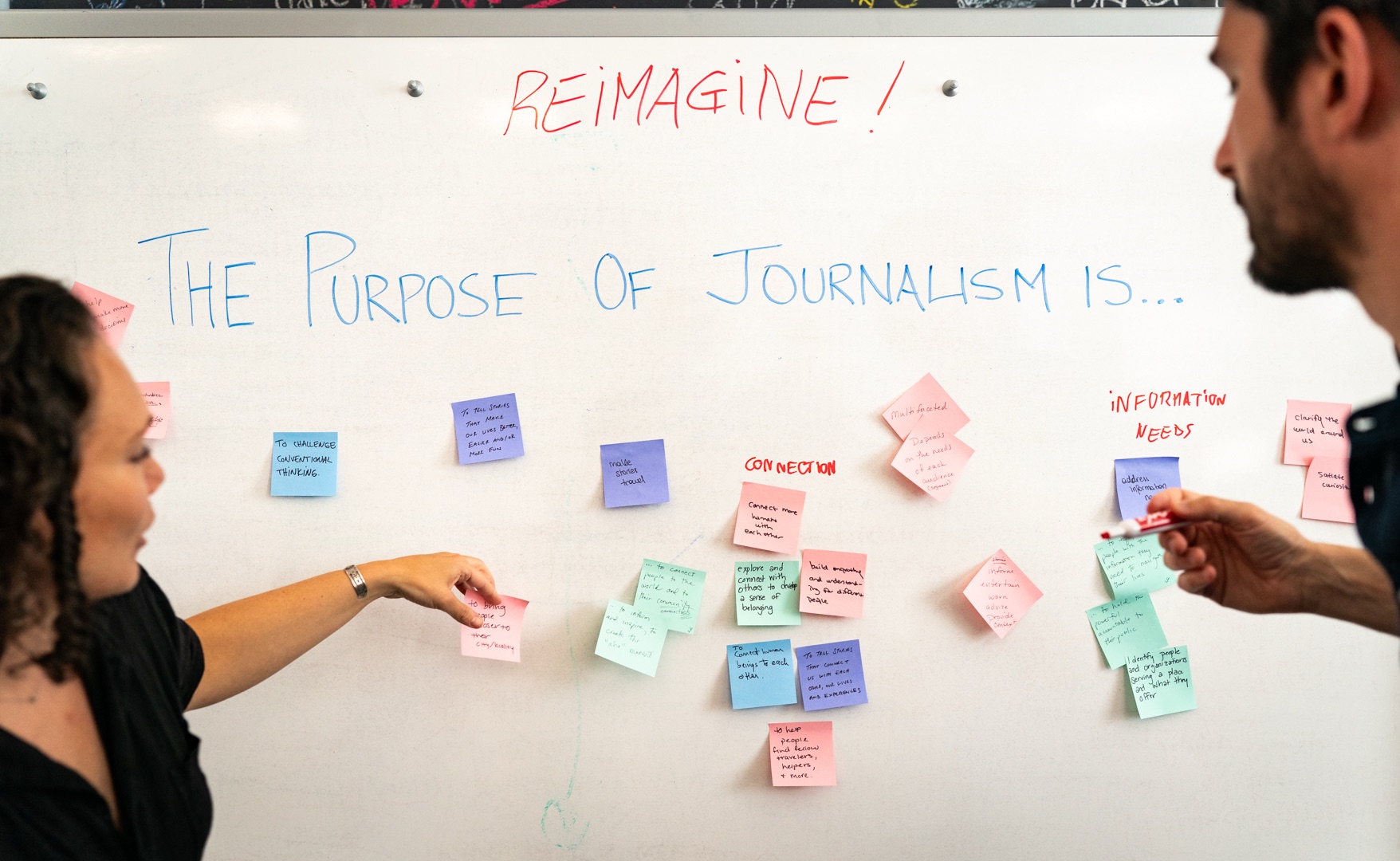On Friday, Knight Lab co-sponsored an event with Kickstarter and Cards Against Humanity, whimsically entitled "How to journalism in a Scary World if you don’t have a Fancy Grant."
The event brought together journalists and other storytellers to talk about how they’ve supported their work and the various funding models you might be able to use as well.
Nicole He was on hand to make a pitch for Kickstarter, which last year launched a journalism category. It’s obviously a compelling option, with organizations like the Texas Tribune, FOIA Machine and Matter all running campaigns to fund launches or support new initiatives.
But the company has also earned a solid reputation for helping individuals report stories that are important to them. Andrew Groen told the story of his successful campaign to fund a history book on “the politics, warfare, betrayal, and culture” of the game Eve Online.

Groen set out to raise $12,500 and ended up at $95,000. The key to a successful campaign, he said, was to focus on a narrow niche — in his case the community of Eve Online players. He also said that journalists should have previously established credibility and rapport within the community, which he did by writing a series of shorter Eve Online stories for Penny Arcade. Those stories helped him get to know the community’s leaders and his potential readers. Only after learning more about the community as both a player and journalist, did he go back for funding.
While Groen’s experience was the most replicable among the journalists who spoke on Friday, the models journalists have found are intriguing.
Wailin Wong, for example, is the sole journalist at The Distance, a magazine and podcast about longevity in business. The Distance is a pet project of the project management company Basecamp and its founder Jason Fried. Fried hired Wong to help create the publication, which covers businesses that are mature and sustainable, a category of business writing Fried found lacking.
Mike Fourcher, meanwhile, recounted a long list of media projects he’s worked on — hyper local, political campaigns, Rivet Radio, and others— and the lessons he’s learned along the way. Among the most important: identify an audience, keep costs low, and have a revenue plan (then cut it in half), he said. Fourcher’s most recent project is Aldertrack, a newsletter that covers the Chicago City Council that launches this month. (For tons of lessons in media entrepreneurship, check out Fourcher’s blog.)
Overall, it was a fun, unique event. We owe a huge thank you to the other speakers at the event: Melissa Harris, Chicago Tribune business columnist and founder of startup that’ll help journalists A/B test headlines; Andrew Huff, editor and publisher of Gaper’s Block; Trin Garritano, events manager at CAH; Alex Cox, a documentary filmmaker; and Knight Lab’s own Joe Germuska.




